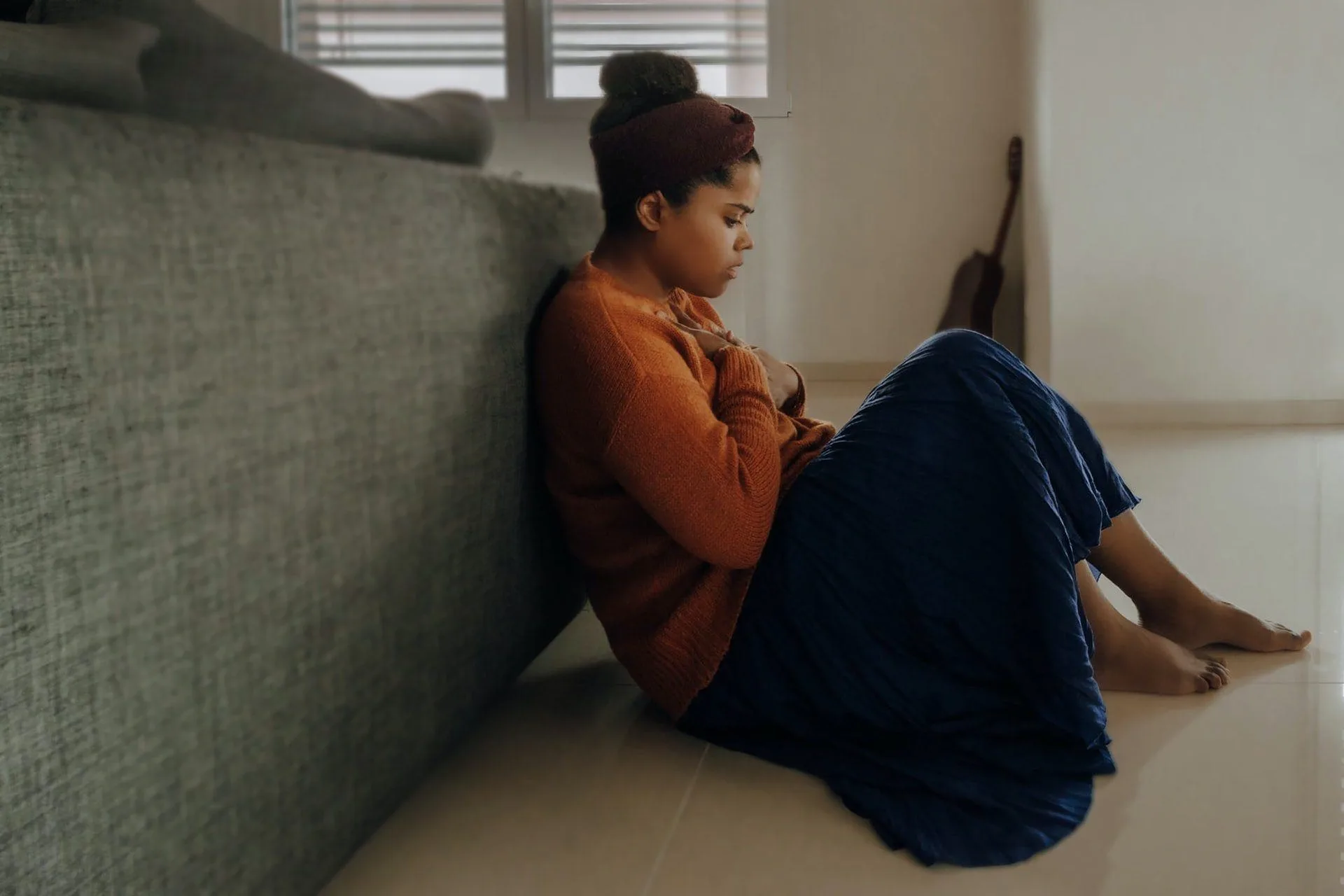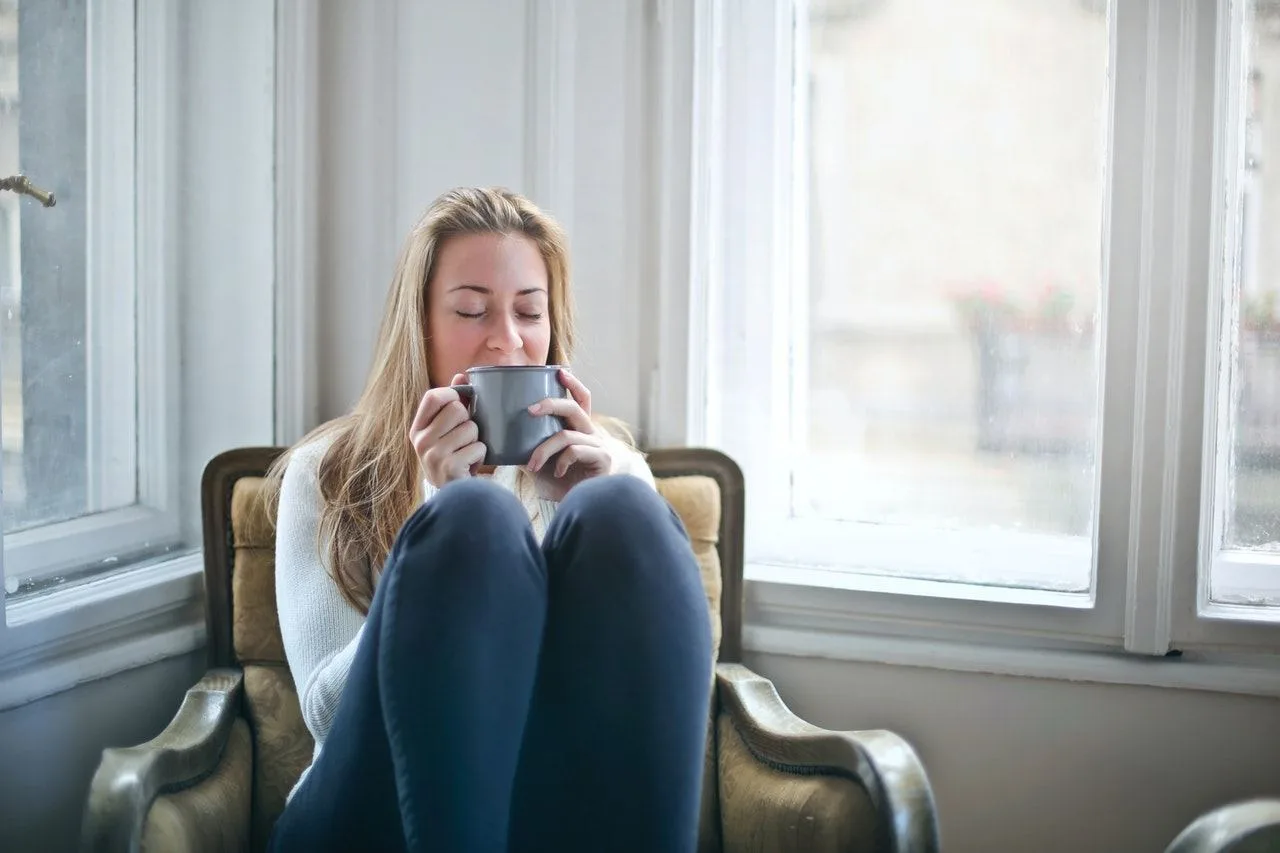We’re in the midst of a mental health crisis, and many are trying to find ways to unwind and protect their mental health. One activity that’s been found to be calming is making a cup of tea. The simple act not only gives us a chance to slow down and reflect, but choosing the right type of tea may be exactly what you need to relieve your anxiety.
The Best Teas For Your Anxiety
1. Peppermint tea

While it’s often seen as a topical application for aches and pains, peppermint also transforms into a delicious tea that can help to alleviate feelings of stress, anxiety, and fatigue.
Peppermint is seen as a natural sedative, especially because it’s been found to help relax muscles. Additionally, one study found that inhaling peppermint helped alleviate pain and anxiety in cardiac patients.
2. Chamomile tea
This should calm as no surprise, especially since chamomile tea is regularly touted as a calming tea with stress-relieving properties – and there’s research to back this up.
According to a study published in the journal Phytomedicine, chamomile tea was found to significantly reduce moderate-to-severe generalized anxiety disorder (GAD) symptoms (it should be noted that chamomile didn’t prevent future symptoms from occurring.)
Additionally, chamomile has been found to contain apigenin – a compound that’s been found to have anti-anxiety effects.
3. Lavender tea
Lavender has sedative effects on the body because it helps to neutralise your heart rate and breathing, which are both affected when you’re feeling anxious.

Photo by Sixteen Miles Out on Unsplash
What’s more, a German study found that lavender oil capsules were just as effective as benzodiazepine (Xanax and Valium) when it comes to relieving anxiety. The best part is that, unlike the medicines, the capsules did not come with the risk of side effects.
4. Valerian tea
This dried root has been found to not only help alleviate anxiety but it’s also been found to help treat sleep problems, which can also be increased due to anxiety.
According to a study published in the Journal of Evidence-Based Integrative Medicine, valerian was found to be a safe and useful herb alone and also in combination in treating sleep problems, anxiety, and associated comorbidities. With that said, valerian root has been found to interfere with certain prescription medications, so you might want to speak with your doctor before brewing a cup.
5. Lemon balm tea
According to studies, lemon balm helps to do this by increasing levels of the neurotransmitter gamma-aminobutyric acid (GABA) as research has linked low levels of GABA to anxiety and other mood disorders.
A study also found that lemon balm supplements helped reduce symptoms of anxiety, depression, stress, and insomnia in individuals dealing with heart-related chest pains.

Photo by Joice Kelly on Unsplash
6. Passionflower tea
Research has found that passionflowers can provide anxiety relief and this may be because of their flavonoids.
Passionflower contains chrysin, which has strong anti-anxiety effects. In fact, a 2021 study found that “chrysin may ameliorate specific types of anxiety that are associated with new and stressful environments in women with low concentrations of ovarian hormones.”
7. Green tea
Green tea has been linked to a number of health benefits, one of which includes reduced anxiety.
One of the compounds found in green tea is the amino acid L-theanine. According to a study published in Nutrients, “L-theanine has the potential to promote mental health in the general population with stress-related ailments and cognitive impairments”.
Takeaway
Yes, there are some teas out there that have calming and anxiety-relieving effects. However, that doesn’t mean that these teas should ever be used in place of a prescribed treatment. If your anxiety begins to affect your daily life, try reaching out to a mental health professional or confidante.
References
Akbari, F., Rezaei, M., & Khatony, A. (2019). Effect Of Peppermint Essence On The Pain And Anxiety Caused By Intravenous Catheterization In Cardiac Patients: A Randomized Controlled Trial. Journal of pain research, 12, 2933–2939. https://doi.org/10.2147/JPR.S226312
Dantas, L. P., de Oliveira-Ribeiro, A., de Almeida-Souza, L. M., & Groppo, F. C. (2017). Effects of passiflora incarnata and midazolam for control of anxiety in patients undergoing dental extraction. Medicina oral, patologia oral y cirugia bucal, 22(1), e95–e101. https://doi.org/10.4317/medoral.21140
Haybar, Habib et al. (2018).The effects of Melissa officinalis supplementation on depression, anxiety, stress, and sleep disorder in patients with chronic stable angina. Clinical Nutrition ESPEN, Volume 26, 47 – 52
Hidese, S., Ogawa, S., Ota, M., Ishida, I., Yasukawa, Z., Ozeki, M., & Kunugi, H. (2019). Effects of L-Theanine Administration on Stress-Related Symptoms and Cognitive Functions in Healthy Adults: A Randomized Controlled Trial. Nutrients, 11(10), 2362. https://doi.org/10.3390/nu11102362
Kumar, S., Madaan, R., & Sharma, A. (2008). Estimation of Apigenin, an Anxiolytic Constituent, in Turnera aphrodisiaca. Indian journal of pharmaceutical sciences, 70(6), 847–851. https://doi.org/10.4103/0250-474X.49143
Mao, J. J., Xie, S. X., Keefe, J. R., Soeller, I., Li, Q. S., & Amsterdam, J. D. (2016). Long-term chamomile (Matricaria chamomilla L.) treatment for generalized anxiety disorder: A randomized clinical trial. Phytomedicine : international journal of phytotherapy and phytopharmacology, 23(14), 1735–1742. https://doi.org/10.1016/j.phymed.2016.10.012
Rodríguez-Landa, J., Guillén-Ruiz, G., Hernández-López, F., Jonathan Cueto-Escobedo, J., et al. (2021). Chrysin reduces anxiety-like behavior through actions on GABAA receptors during metestrus-diestrus in the rat, Behavioural Brain Research, Volume 397, 112952, ISSN 0166-4328, https://doi.org/10.1016/j.bbr.2020.112952.
Shinjyo, N., Waddell, G., & Green, J. (2020). Valerian Root in Treating Sleep Problems and Associated Disorders-A Systematic Review and Meta-Analysis. Journal of evidence-based integrative medicine, 25, 2515690X20967323. https://doi.org/10.1177/2515690X20967323
Woelk, H., Schläfke, S. (2010). A multi-center, double-blind, randomised study of the Lavender oil preparation Silexan in comparison to Lorazepam for generalized anxiety disorder, Phytomedicine, Volume 17, Issue 2,
Pages 94-99, ISSN 0944-7113, https://doi.org/10.1016/j.phymed.2009.10.006.





![women [longevity live]](https://longevitylive.com/wp-content/uploads/2020/01/photo-of-women-walking-down-the-street-1116984-100x100.jpg)










